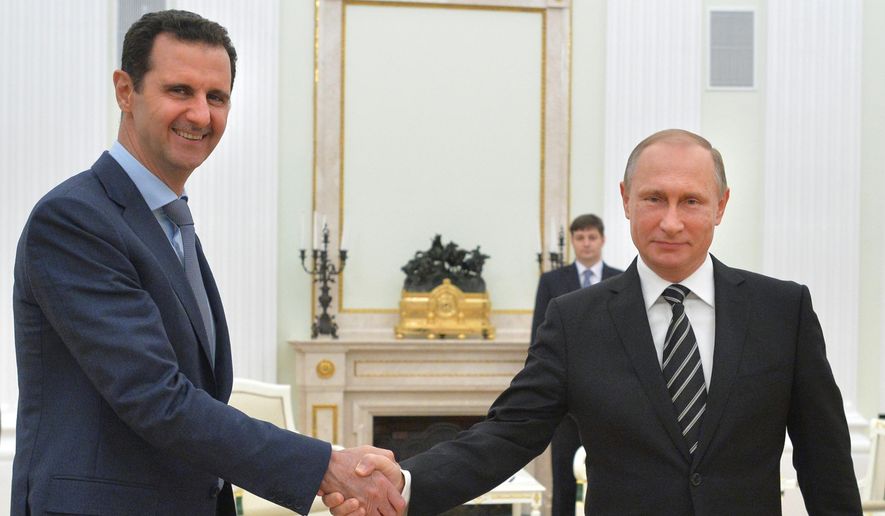The optics have been impressive.
The Russian Federation capably deployed an air and ground expeditionary force to Syria and is building support facilities in expectations of a long-term commitment to the longtime Soviet and Russian ally. The forces have sustained a multi-week-long air campaign at a high sortie rate to support the Assad regime and the Syrian army in the fight against the Sunni rebels. Russia has rearranged the chess board in the Middle East. Western governments and Western adversaries are taking notice. There is a new sheriff in town, sitting in the American build command center in Iraq, coordinating operations with Iran against American-armed proxy forces.
The Russian state news media has been in overdrive, hyping the Syrian operation as a new standard in power projection and crowing about the weakness of the United States and its coalition partners in theater. Headlines scream of the Islamic State cutting off their beards and fleeing dressed as women to Turkey, fleeing the mighty Russian air force. The picture doesn’t get any better than this.
Now comes the hard part.
Where does Russia go from here? It has approximately 30-plus, mostly ground attack aircraft in theater. It has security troops and most likely special operation forces on the ground as well. These can act as force multipliers to slow the advance of enemy forces and possibly even take back some territory. However, this is not a big enough force to win the Syrian war, especially if the United States and Europe step up their support for the opposition.
The deployment and air campaign have been a nice first act, but what happens next?
To answer this question, one must try and discern the political agenda of the Kremlin. Is Russia ready to build up enough force structure in the region to actually save the Assad regime? Does Russia really want to go after the Islamic State of Iraq and Syria (ISIS) as they have declared? Or, are they positioning themselves to use Syria to help ease sanctions levied from the annexation of Crimea and the conflict in East Ukraine?
My sense is that budget considerations are driving a lot of the political agenda. Yes, Russia, still has more than $300 billion of foreign currency reserves, but these are dwindling fast. A lot of that money may be needed to rescue blue chip, state-controlled Russian corporations and banks. The economy could be contracting a lot longer than most people think, especially if the price of oil continues to fall.
The war in East Ukraine was costing a lot of money. Unlike some voices, I don’t believe that Russia will extract itself from that conflict. Ukraine is akin to Texas in their eyes. They will not allow the gains made in the Donbass to be lost. Russia would much rather “freeze” the conflict, as they have in South Ossetia and Transdniester. The bet is that eventually Ukraine will make its way back home, which is what seems to be possible in Moldova and Georgia. What Russia cannot allow is for Ukraine to become a member of the European Union. However, in order to prosecute the upcoming Russian Middle Eastern play, they had to end the Novorossiya conflict for the time being. But make no mistake, the violence there can be restarted in a moment’s notice.
Therefore, the purpose of the Syrian operation could be to create a bargaining chip to trade for sanctions relief down the road. Russia would like nothing more than for the world to think it is defeating the Islamic State, hence the overactive propaganda machine spouting such a narrative. Also, I believe Russia truly thinks it can save some type of rump state with Assad in power to protect a regional and to provide a Russian presence to counter Western influence. Therefore, Syrian President Bashar Assad traveled to Moscow in a surprise visit to showcase Moscow’s support.
One thing is certain: The West has underestimated Vladimir Putin time and time again. Under the Obama administration will most likely do so again. Mr. Putin is most likely already three steps ahead of President Obama and Secretary of State John Kerry.
After all, what better way to jack up the price of oil and help the beleaguered Russian economy than to start a larger war in the Middle East?




Please read our comment policy before commenting.